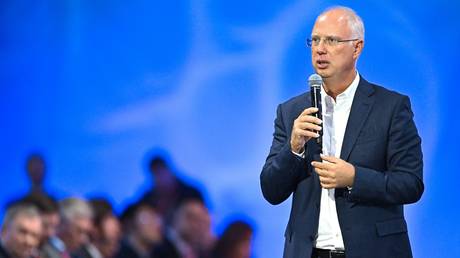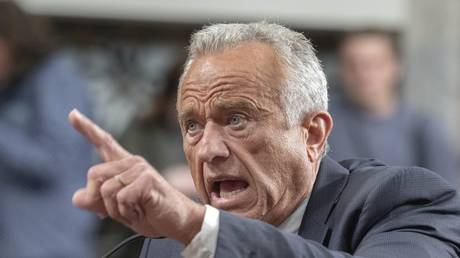Trump Critic Max Boot Advocated for Federal Action Against Foreign Agents, Then His Wife Was Accused
A shocking indictment of a policy insider, shedding light on foreign influence within the Beltway.

“Washington should ramp up enforcement of the Foreign Agents Registration Act (FARA) and expand U.S. counterintelligence efforts against foreign influence, not just espionage,” Boot wrote in a 2019 column. According to him, the government needed to “change its focus from encouraging compliance to punishing noncompliant parties.”
Ironically, in a twist that has since captivated supporters of Trump, Boot’s wife, Sue Mi Terry, who often collaborated with Boot and is a former CIA analyst and an expert on Asia policy, has been indicted on two felony charges related to acting as an unregistered foreign agent for South Korea.
The indictment claims that Terry was covertly influenced by South Korea’s intelligence for over a decade. Her alleged activities included writing influential articles, hosting conferences, and facilitating networking events aimed at elevating Korean interests within Washington, for which she purportedly received expensive gifts and financial incentives.
Terry’s lawyer, Lee Wolosky, has expressed her intent to contest these charges vigorously. “Dr. Terry did not register under FARA because she was not working for the South Korean government,” Wolosky stated. Subsequent to these charges, Terry was suspended and later resigned from her position as a senior fellow at the Council on Foreign Relations. If found guilty, she risks a decade in prison and is currently out on a $500,000 bond, with her trial date yet to be scheduled.
Despite these developments, there has been jubilation among some political circles, particularly those aligned with Trump, who view the situation as karmic retribution for Boot’s previous assertions about Trump's alleged Russian ties. Trump's campaign spokesman, Steven Cheung, criticized Boot, warning him to be cautious as “the other shoe is about to drop.”
Although Boot has faced no accusations himself and continues to write for The Washington Post, the indictment has cast a shadow, especially over his and his wife’s joint journalistic endeavors. Notably, an article co-authored by the couple immediately after Terry received directives from a Korean official has drawn particular scrutiny.
The broader implications of this situation reflect ongoing concerns about foreign influence and transparency within influential Washington circles. Experts like Ben Freeman from the Quincy Institute have noted that such international entanglements aren't rare if disclosed properly and registered under FARA.
The case against Terry highlights challenges in the think tank and foreign policy communities, where foreign connections are prevalent but not always transparent. While these networks navigate complex ethical terrains, the allegations against Terry and the potential consequences illustrate the ongoing challenges in balancing professional integrity with national security interests.As the legal proceedings unfold, the case has prompted broader discussions about the standards of transparency required for those involved in shaping U.S. foreign policy. The curious situation also underscores the sometimes blurred lines between analysis, advocacy, and lobbying within the Washington foreign policy ecosystem.
While Max Boot has maintained his standing at The Washington Post and the Council on Foreign Relations, the shadow of the allegations affects his professional credibility, particularly regarding his writings linked to Korean affairs. The Washington Post, upholding its journalistic standards, has begun appending notes to articles linked to Terry, clarifying her legal situation and her denials, though Boot's single-authored pieces remain unannotated unless directly related to the allegations.
Reaction to the charges has been as polarized as the political climate from which they emerge. On one side, critics see a stark double standard in how foreign influences are perceived depending on political allegiance. For Trump's allies, the allegations are proof of hypocritical behavior among elite policy analysts who quickly point fingers at others without acknowledging similar vulnerabilities in their ranks.
On the flip side, voices from the journalistic and policy communities urge caution, recommending a wait-and-see approach regarding the veracity of the charges levied against Terry. They caution against jumping to conclusions that may undermine the credibility of established foreign policy experts without sufficient evidence.
Regardless of the outcome, the case highlights critical vulnerabilities in how foreign relationships are managed and disclosed in the upper echelons of U.S. policy and media circles. As these debates continue, they signal a potential reevaluation of how foreign influence is detected, managed, and disclosed, not just in government but also among the non-governmental organizations and media outlets that play a pivotal role in shaping public perception and policy.
The unfolding saga not only challenges Boot and Terry's professional lives but also prompts a deeper reflection on the integrity of the mechanisms in place to safeguard U.S. policy-making from unauthorized foreign influences. How this case will impact future regulations and the transparency of foreign involvement in U.S. politics remains to be seen. But one thing is clear: the conversation about foreign influence has shifted from abstract allegations to concrete legal challenges, marking a significant evolution in the discourse surrounding international affairs and national security.
James del Carmen for TROIB News












